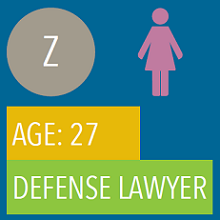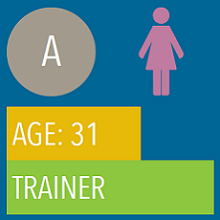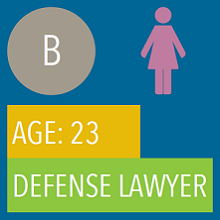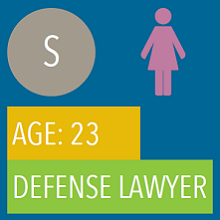IDLO has been working in Afghanistan since 2002 to strengthen access to justice, uphold human rights, expand legal capacity and promote local ownership.
One of its largest endeavors, the Afghan Justice Institutions Strengthening (AJIS) program, sought to improve the quality of and confidence in the legal system in Afghanistan. Working in close partnership with the Ministry of Justice, Supreme Court, Ministry of Women’s Affairs and Independent Bar Association, IDLO worked to build the capacity of professionals in Afghanistan’s justice sector institutions to deliver civil and commercial justice.
At a recent ceremony marking the closure of the AJIS program, the Deputy Minister for Administration and Finance at the Ministry of Justice, Sayed Mohammad Hashimi, noted that 45 per cent of employees at the Ministry of Justice do not have a legal background. Opportunities to increase their legal knowledge and skills such as the ones provided by IDLO are therefore critical to strengthening the rule of law in Afghanistan.
Equipped with new legal knowledge and skills gained during IDLO training courses, four female Afghan legal professionals have gone on to…

Defense lawyer Z. frequently found herself unable to perform her job properly because she wasn’t familiar enough with criminal procedures. It made her feel inadequate and dejected. Then, in 2016, Z. was selected by IDLO to participate in a five-day training course that taught participants how to apply the law and elaborate on articles in a structured manner.
“One month after the training,” Z. recalled, “I was hired to defend a person who had been sentenced to 12 years in prison and had received a death penalty on appeals. After reviewing all the relevant documents, I realized that the appeals prosecutor had misinterpreted Article 7 of the Criminal Procedure Law. I also identified numerous gaps in the rendering of the sentence, which I addressed in my defense statement.”
“When I presented this to the judges, they acknowledged a lack of evidence against my client and ordered the dossier to be sent back to the Attorney General’s Office. Once it had been reviewed, I again defended the case before the judges. Using the knowledge I gained during IDLO’s course, I managed to prove that there was insufficient evidence against my client to determine his guilt. As a result, the judges ordered his immediate release.”
“That experience changed my life. I feel so much more confident now, and I’m able to defend a case without any fear or stress.”
Using the knowledge I gained during IDLO’s course, I managed to prove that there was insufficient evidence against my client to determine his guilt. As a result, the judges ordered his immediate release.
… assist Afghan women and children in need

“After completing the training of trainers, Z. and I decided to set up our own organization. Currently, we are running pro bono cases to assist women and children who have been referred to us by the Independent Bar Association. It feels very good, working for my own organization and assisting Afghan women and children in need.”
A.’s training skills were also put to good use within the AJIS program. Working as an assistant trainer, she helped deliver six courses on Criminal Procedure Law to members of the Bar Association.
Currently, we are running pro bono cases to assist women and children who have been referred to us by the Independent Bar Association. It feels very good, working for my own organization and assisting Afghan women and children in need.
… help a young girl cancel her engagement

B. was selected by DoWA to attend an IDLO professional training course on Afghan family law in July 2017.
“This opportunity helped me to gain a deeper insight into family law,” she said. “Two weeks after the training, a young girl came to my office requesting to divorce her husband. I figured they were only engaged and made her aware of Article 64 of the Afghan Family Law, explaining that she should request cancellation of the engagement rather than a divorce. Upon my advice, she compiled a new application which I referred to the Directorate of Justice’s Law Department. I personally followed her case. Within one month, she had obtained the cancellation of her engagement.”
“I appreciate that the course was delivered in the Eastern region of Afghanistan rather than activities being restricted to the capital, Kabul. Thanks to this training, I now know how to proceed and refer family law cases to the right judicial organ.”
Upon my advice, she compiled a new application which I referred to the Directorate of Justice’s Law Department. I personally followed her case. Within one month, she had obtained the cancellation of her engagement.
… present successful defense statements

“I used to spend all my time worrying about how to improve my legal writing skills, and how to follow up on or refer civil cases to the right office”, S. recalled.
She was selected by the Afghan Independent Bar Association to participate in IDLO’s professional training course on legal writing.
“I learned that defense statements must follow a specific structure which begins with a comprehensive introduction, follows with the body and finishes with the conclusion. Similarly, it is crucial to take into consideration grammar, spelling, vocabulary, style, and – most importantly – the tone of the presentation before the judges in court.”
“I am currently running two civil cases. I drafted the defense statements myself and successfully presented them before the judges at both the Primary and Secondary Courts,” she concluded, with a smile.
I am currently running two civil cases. I drafted the defense statements myself and successfully presented them before the judges at both the Primary and Secondary Courts.
Implemented from August 2015 to March 2018, the AJIS program was funded by the Government of the Netherlands. Program statistics are updated as at 9 March 2018.

